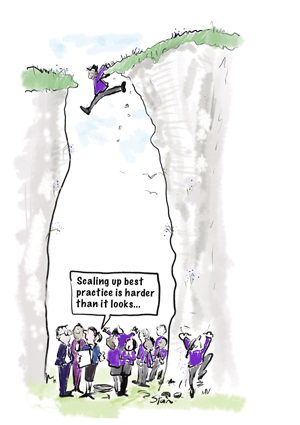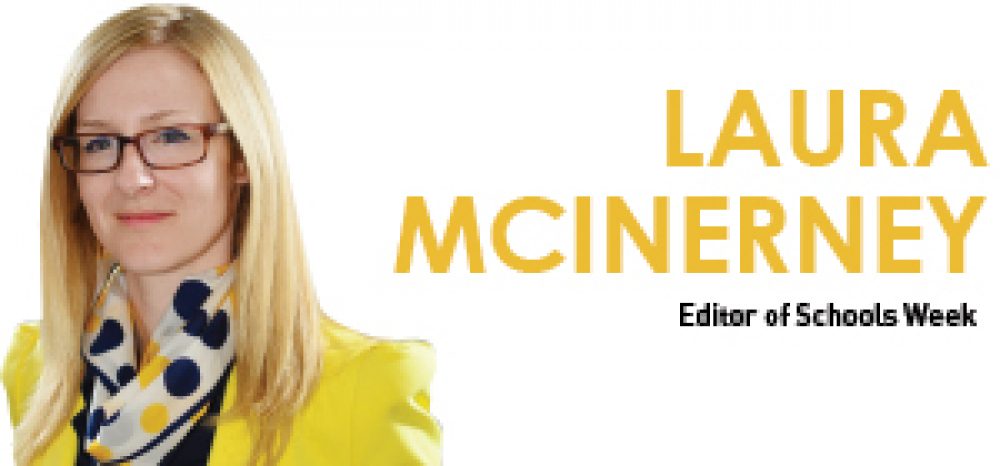The last few weeks of EU referendum debate have shown how badly we do latent anger as a country. Whatever ideals one may hold, whatever the reality may be, swathes of the population nevertheless feel as if politicians have long ignored them and want to exert more power over their lives.
By the time you will be reading this, the voting will be over. One uncertainty will be gone. But others will surface now that people are no longer content to stay quiet about things that have angered them. Grammar schools, I fear, will be one of the new battlegrounds.
It was therefore enormously inconvenient when senior reporter Sophie Scott showed me the results of our investigation, completed with data company School Dash, on the declining achievement gap between children with different levels of prior attainment.
The chasm between pupils who excel early in school compared with those lagging behind looks to be reducing. Unfortunately, this appears to be due to some schools presiding over a decline in their brightest pupils’ achievements rather than because laggers are boosted.

Reading the piece, I clung to the fact that some researchers quibbled with the finding. It’s probably a quirk in the data, they said. Sure, I thought, must be that. Before realising I had fallen prey to the trick of finding the one bit of an article I agreed with and deciding it was definitely the only correct part. Sigh.
If just one piece of data was suggesting a problem for high-fliers I could dismiss it as a quirk. But both chief inspector Sir Michael Wilshaw and Tony Sewell – the profile interview this week on page 12 – are also saying the same. In their view, kids with early potential simply aren’t being pushed.
Logically, I don’t believe it. Most teachers love smart kids and go out of their way to help them.
But, a bit like burying our heads in the sand over immigration, if we don’t recognise that concerns about this issue are growing we could find politicians taking advantage of quiet resentments.
If Boris Johnson becomes the next prime minister – and he’s currently the bookies’ favourite – there’s reason to believe he will attempt to reintroduce grammar schools. Even if he’s not PM, the influence of Conservative backbenchers is likely to get louder. And many are also grammar fans.
If that happens, any evidence hinting that high-attaining pupils are facing disadvantage will be used to stoke agreement for grammars. Doesn’t matter if I disagree with it personally. Doesn’t matter if other data researchers do. Once the narrative begins, and it taps into people’s deepest beliefs, the reality will be ignored.
So, what should be done to ensure high-attaining pupils achieve their potential?
Streaming by ability is the easy go-to. The Labour government did this in the early 2000s, with Ruth Kelly using her time as education secretary to call for the return of top sets. Nicky Morgan also said the same early in her tenure. Then quietly never mentioned it again.
A second (better) hope is that changes to accountability measures will mean teachers spread their focus across all pupils. But teachers are constantly told to target certain groups – most recently, the whitest, the poorest, the least able, those with special needs and those with mental health issues. Up against those, the most able are likely to come some way down the priority list.
But perhaps we are all missing a trick.
It might be healthier if the government laid off schools and instead looked to extra-curricular organisations such as Sewell’s Generation Genius. It’s almost a cliché in our office that once a quarter we receive a Sutton Trust report saying that young people should have vouchers with which they can access extra-curricular activities – but it’s not a daft idea.
Schools have limited hours and resources, and must batch-educate children in classes. Extra-curricular organisations can be targeted, smaller, linked to pupils’ individual needs. They can help the high-fliers keep flying, and help the stragglers catch up, because they can be more attentive to needs.
Imagine if every child, high or low attaining, attended weekly small group activities in which an adult cared about them, gave them powerful knowledge for their future, and helped them to become great at something they loved. Yes, we’d still be living in a world where GCSE scores differed but at least it would be a world in which each and every pupil was being pushed to achieve more.
And it wouldn’t just be down to schools. It would be a community effort. That’s a world I would vote for, whatever the results of this referendum.



Your thoughts